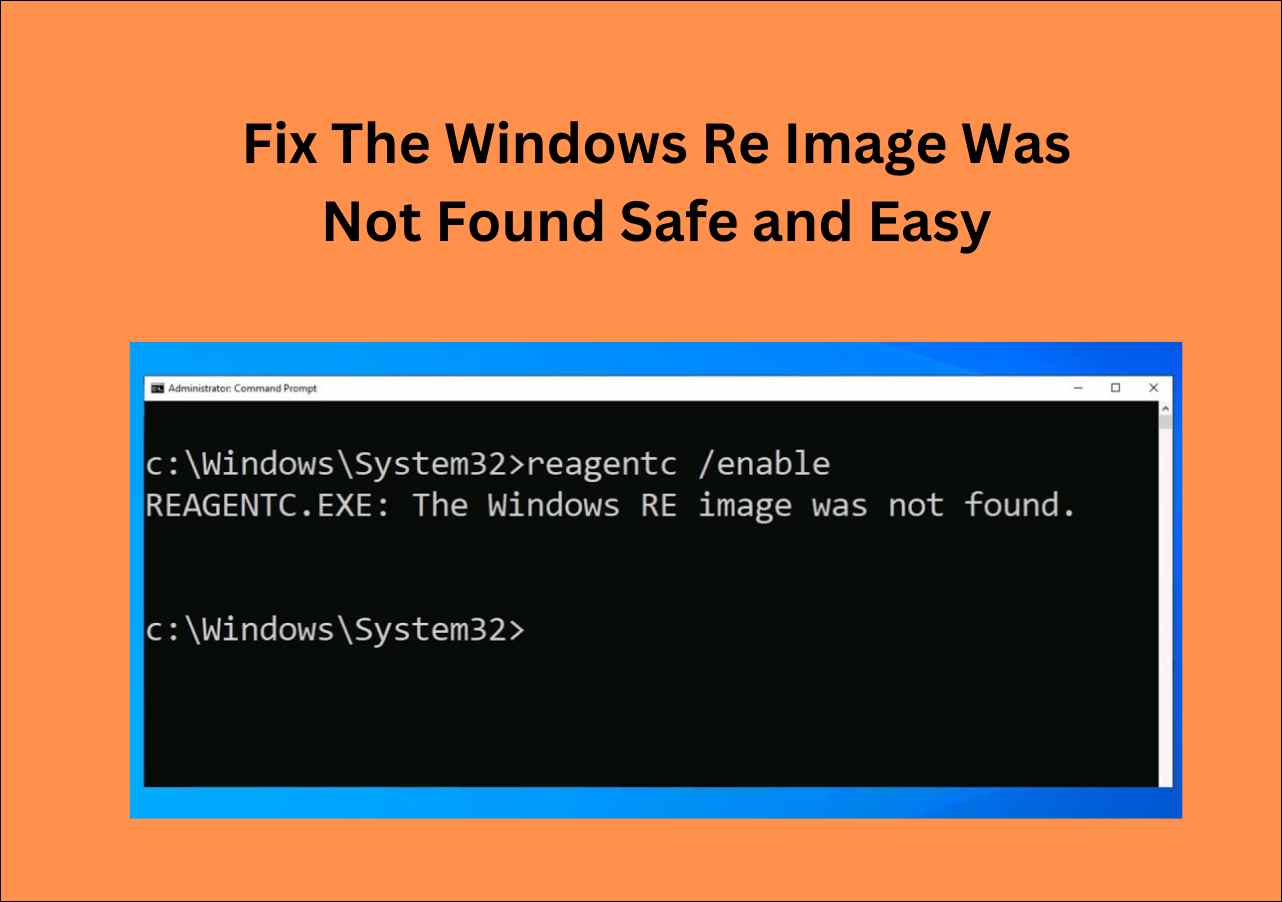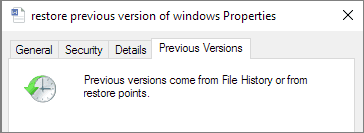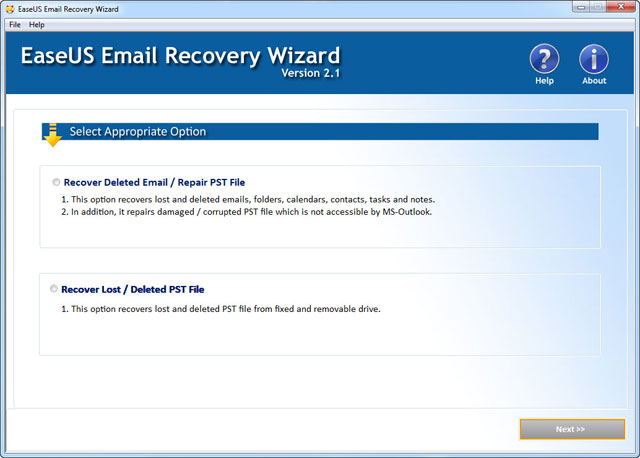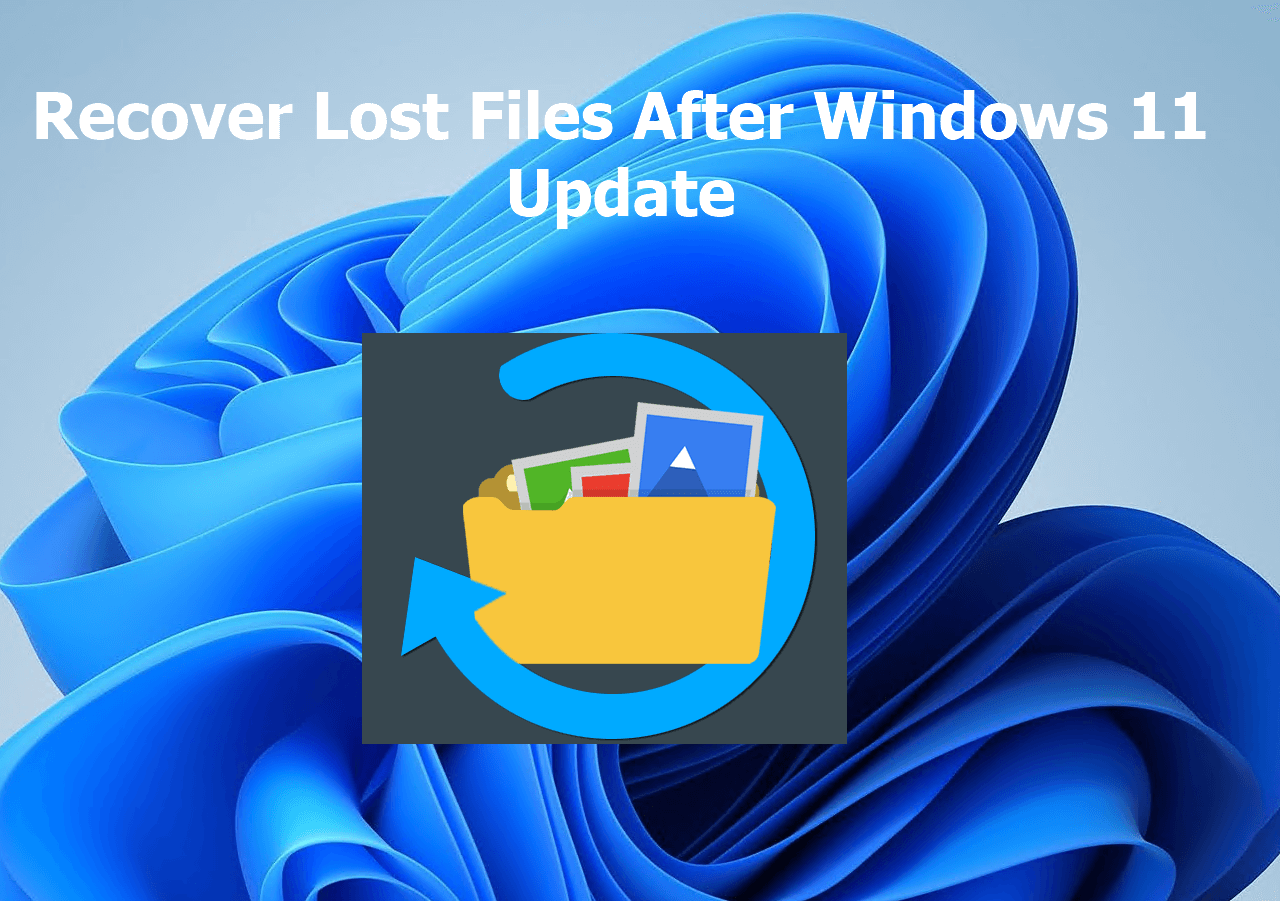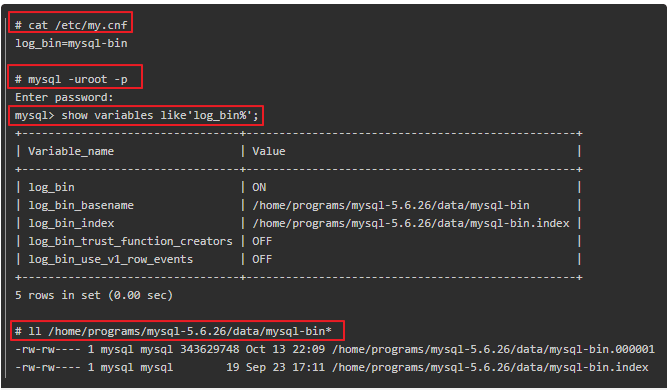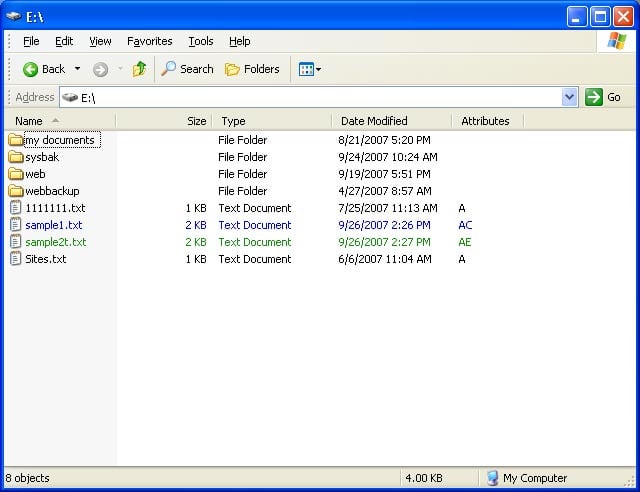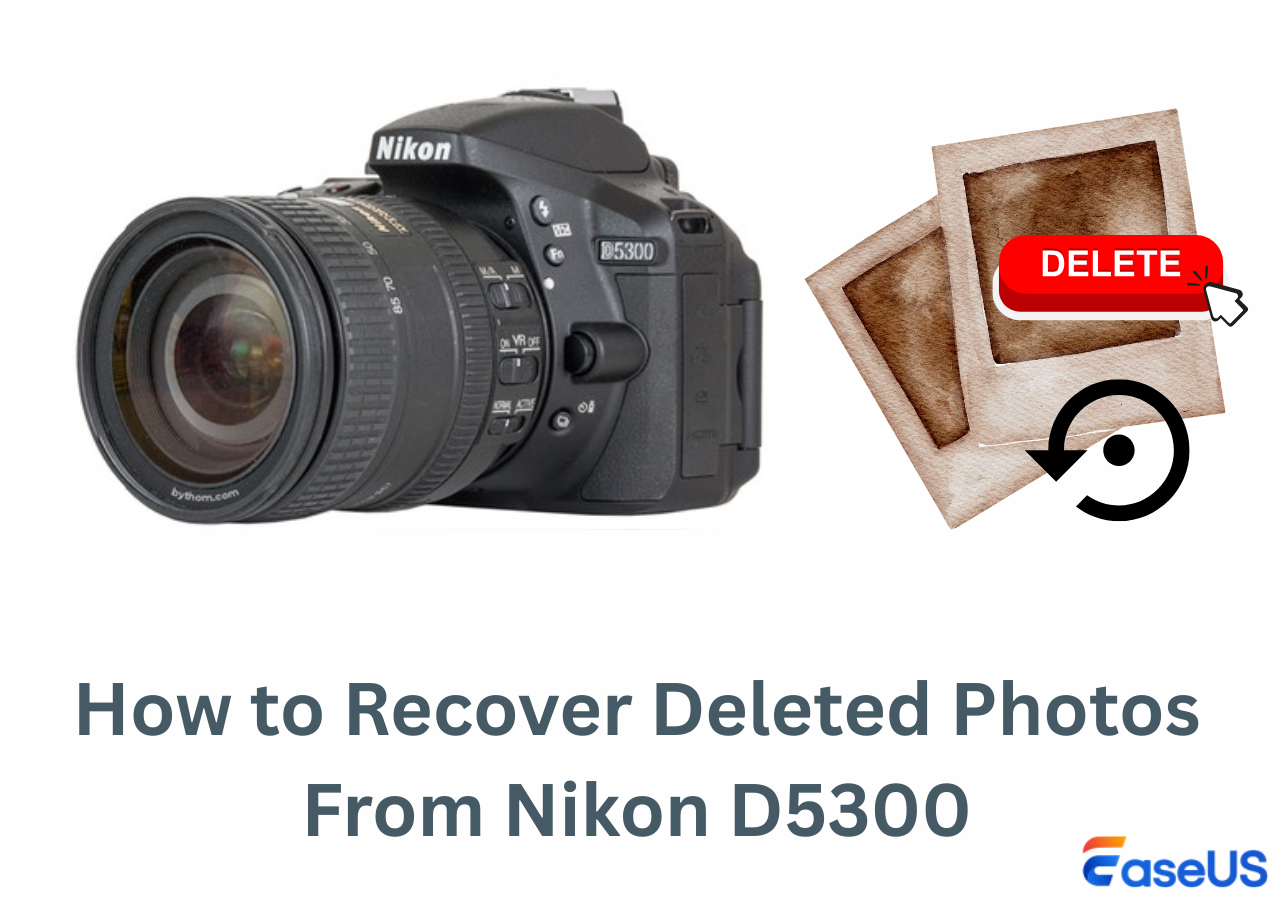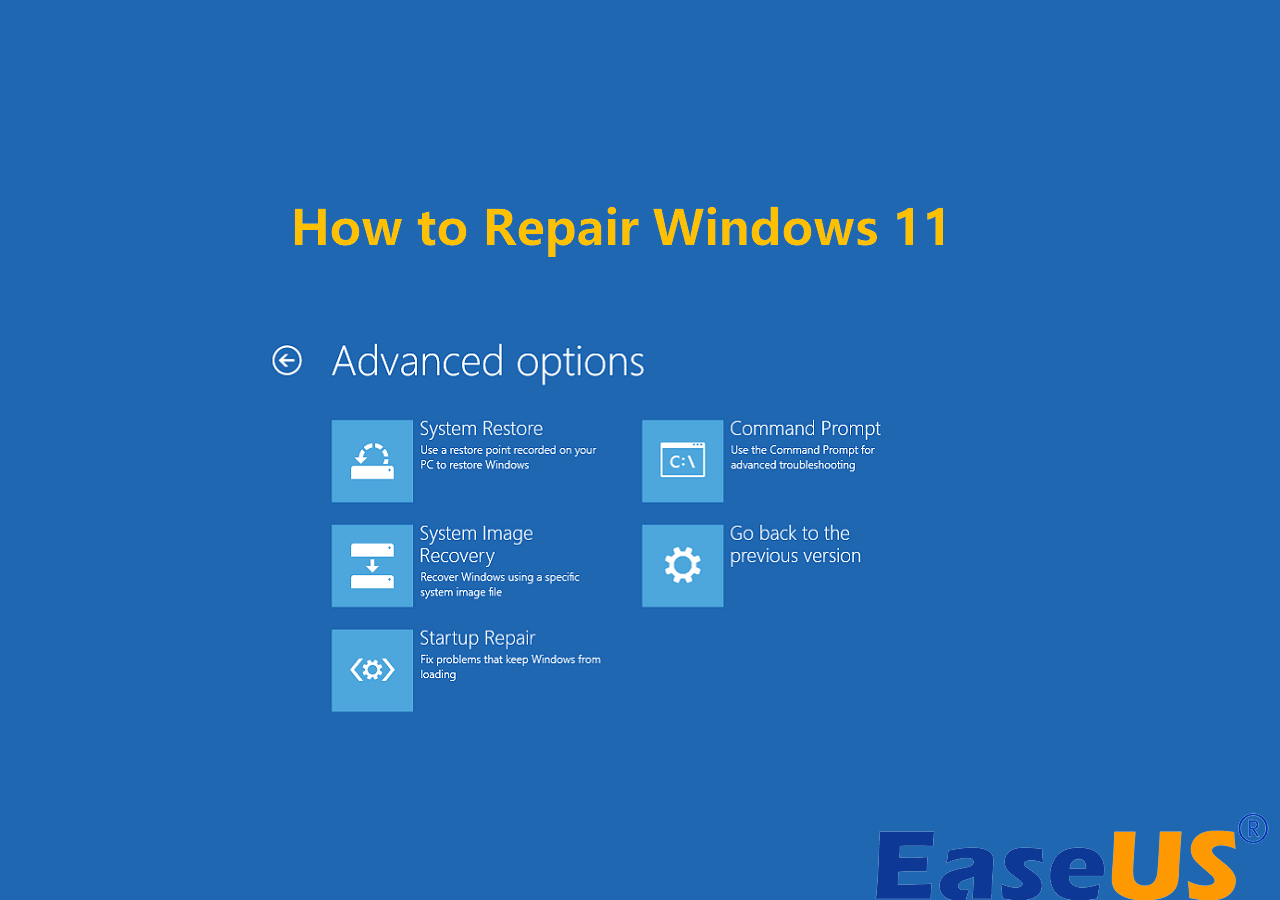-
![]()
-
![]()
-
![]()
-
![]()
-
![]() Free Download MySQL Recovery Tool to Recover MySQL Database | 2026 Free
Free Download MySQL Recovery Tool to Recover MySQL Database | 2026 Free January 19,2026
January 19,2026 6 min read
6 min read -
![]() EFS Decryption Guide: How to Recover Encrypted Files on NTFS Drive Without Effort
EFS Decryption Guide: How to Recover Encrypted Files on NTFS Drive Without Effort February 06,2026
February 06,2026 6 min read
6 min read -
![]()
-
![]()
-
![]()
-
![]()
Page Table of Contents
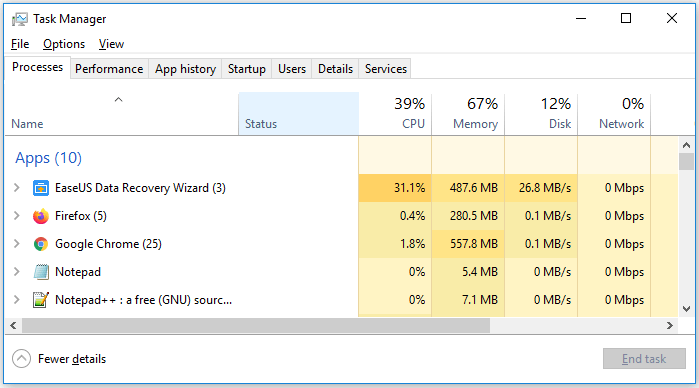
EaseUS Data Recovery Taking Forever/Stuck
If EaseUS Data Recovery Wizard takes a long time to finish a deep scan or is stuck at the scanning process, it may suggest that your disk is so large that the software needs more time to scan the whole disk or there are some issues with the hard drive. Read More>>
Quick Navigation - How to Recover 1TB of Data
If you lost data, follow this guide to recover 1TB of data or more from your hard drive.
| Workable Solution | Step-by-step Troubleshooting |
|---|---|
| Recover 1TB Data |
Step 1. Select a location and start scanning. Step 2. Preview and select the files. Step 3. Recover lost data...Full steps |
When you want to recover terabytes of data like 1 TB data, you may wonder how long it will take. Unfortunately, there is no clear-cut answer to that question, as each case is different. Here are some factors to consider that affect the overall timeline of the data recovery.
1 - Hardware Condition
If your hard drive is fully functional, it runs faster to recover data from than one that is severely damaged and must be repaired. So things get easier to cases related to accidental deletion, format, viruses, etc.
Besides, the condition of the source disk can also decide the time. The bigger the hard drive, physically or logically, the longer the recovery process could take. It takes more time to scan a larger device to recover the data correctly.
2 - The OS and the Computer Environment
The different operating environments can also affect the length of the time. Generally, operating your computer in areas with high heat with environmental vibrations increases the possibility of a hard drive failure. If the hard drive crashes and its host laptop/computer was operated in poor conditions, then the electronic and physical damage tends to be worse. This lengthens the data recovery process.
3 - The Type and Size of the Data
The bigger the size of the data, physically or logically, the longer the recovery process could take. Many large files are not kept in a singular physical space and are more spread out. This can slow down the data recovery process as engineers have to read through damages drives to try to piece together what they can, as best they can. There are also some file types that do to block issues like file corruption as well as others. If the files of this case are involved in the data loss, it may take longer to recover them.
4 - Service Type Ordered
If you just want to scan your data quickly, it saves a lot of time. However, if you order a deep scanning process, the recovery process would be longer. Generally, a quick scan can help you recover deleted data like word documents, photos, videos, music and so on. If you have a drive that needs recovery, a quick scan is suggested.
How to Recover 1TB or More Data
The four factors above can decide the time that data recovery takes. But how to recover lost data? EaseUS EaseUS Data Recovery Wizard can do you a favor. This reliable and professional program makes data recovery pretty easy. It can do the following things:
- Recover deleted, formatted, and inaccessible data in different data loss situations.
- Recover photos, audio, music, and emails from any storage effectively, safely and completely.
- Recover data from the recycle bin, hard drive, memory card, flash drive, digital camera, and camcorder.
You can complete the entire recovery process in just 3 steps. Fast and efficient!
Step 1. Select a drive and start scanning
Launch EaseUS Data Recovery Wizard and hover over the partition where you lost data. This could be an internal hard disk, external disk, USB, or SD card. Then, click "Search for Lost Data".
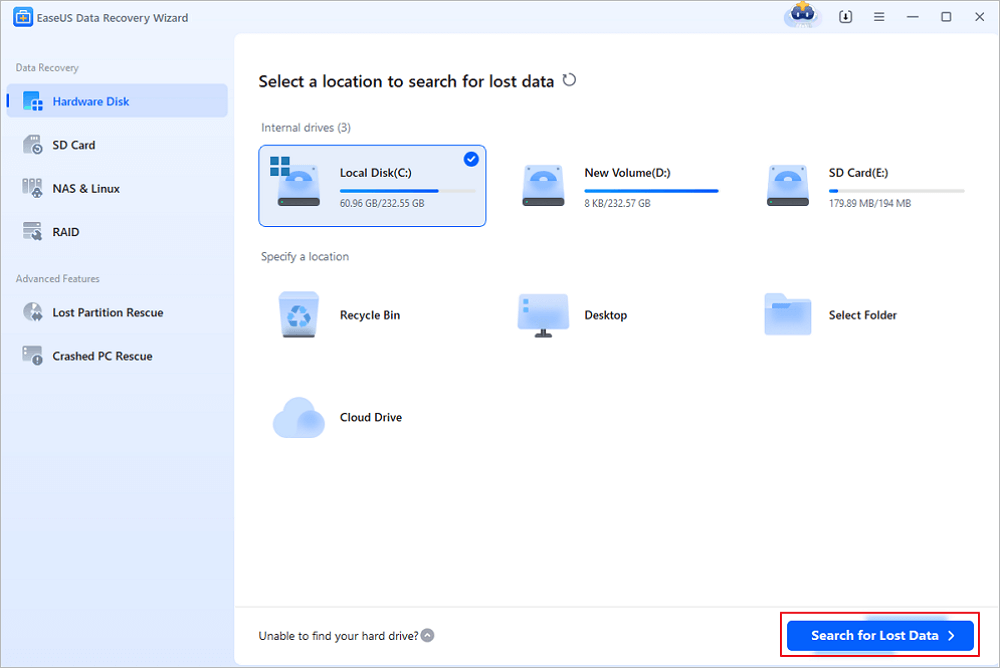
Step 2. Check and preview scanned files
Use the file format filter on the left or upper right corner to narrow the scan results until you find the files you need. Then, you can click the "Preview" button or double-click a file to preview its content, if you'd like.
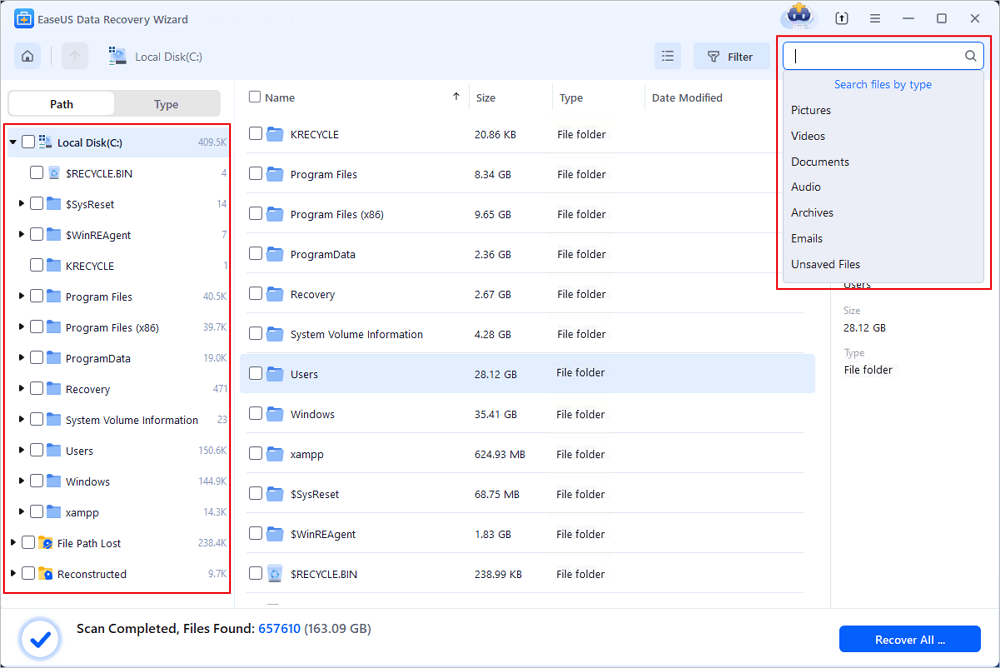
Step 3. Recover lost data to a secure location
Click the checkbox next to the file and click "Recover" to restore the lost data to your local storage or Cloud drive. We recommend that you do not store the recovered data on the disk where you lost it earlier.
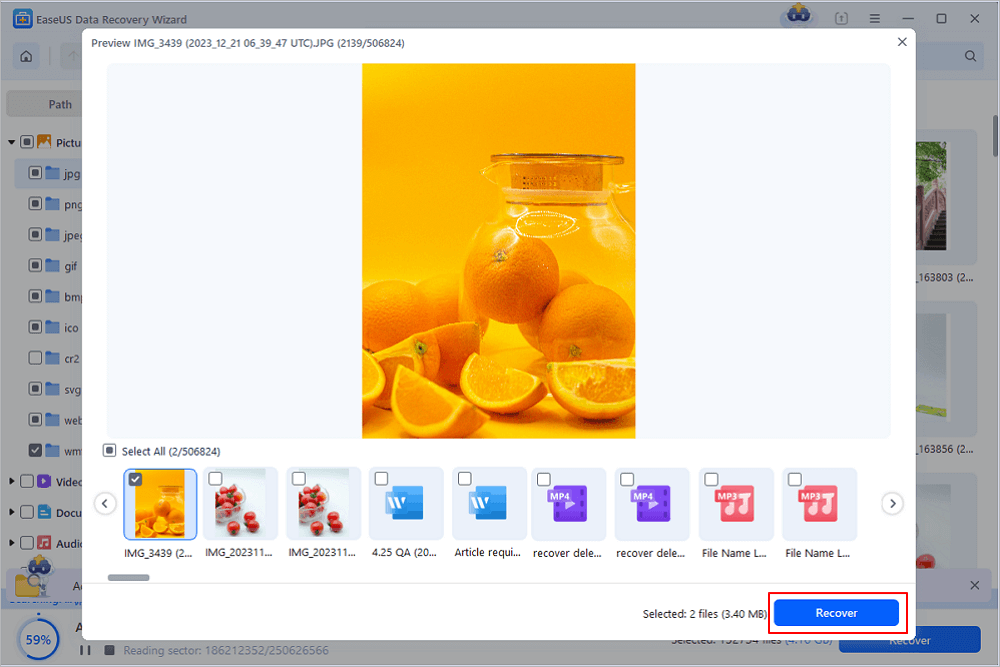
Final Word
If your computer runs smoothly and the hard drive is healthy, then you can recover data in a quick and fast way. Our goal is to return your data to you as soon as possible. If you have a data recovery problem, ask us for help right now.
Was this page helpful?
-
Brithny is a technology enthusiast, aiming to make readers' tech lives easy and enjoyable. She loves exploring new technologies and writing technical how-to tips. In her spare time, she loves sharing things about her game experience on Facebook or Twitter.…
-
Evan Galasso is a digital forensics and data recovery engineer with over 10 years of experience in the field. He presents opinions on the current state of storage media, reverse engineering of storage systems and firmware, and electro-mechanical systems of SSDs and HDDs.…

20+
Years of experience

160+
Countries and regions

72 Million+
Downloads

4.9 +
Trustpilot Score


Free Data
Recovery Software
Recover data up to 2GB for free!
